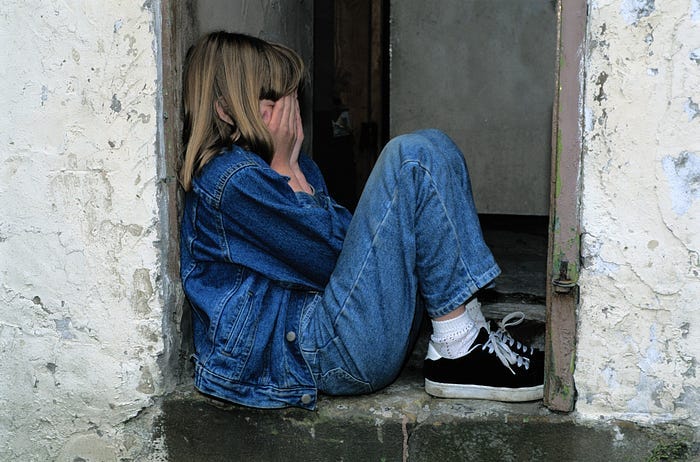The Emotional Impact of Absent Parents on Children
Facts and Fiction: Parenting, Emotional Pain, Psychology, Trauma, Adult Children
When my youngest child was eight years old, I was forced to go to work full time so we could pay our bills and survive. I did not want my children to have the same experience I’d had as a child. I resented not being able to be at home with my children while they were still young. Several things happened to my children that would not have happened had I been home. I had never wanted to work while my children were young because I had been a latchkey kid as a child.
As a child with both parents working, I came home from school every day to an empty house. Though my brother and sister arrived later, we were alone until my parents got home after seven in the evening. During summers, we were at home alone all day and were not allowed to go outside to play or to visit friends since our parents were gone. There was never milk and warm cookies on the table. We could not participate in after school sports or other activities. We didn’t have rides to school or to anywhere during the work week. We were fortunate that nothing bad happened to us, but we missed out on many things most children experience because we were kids at home alone.
Absent parents are a trope in children’s and young adult novels. In fiction, the absence of a child character’s parents usually frees the child or young adult to follow their own dreams and adventures, to become independent, to bond with friends, and to learn about life and themselves. Though the effects of absent parents are mostly positive for young fictional characters, they are generally negative for real life children. While the fictional characters find adventure and maturity in these novels, real-life adults usually suffer emotional fallout due to the absence of parents in their childhoods.
The absence of a parent may be an advantage if that parent has a toxic personality or if they might harm the child, yet even in this case, children whose parent/s are absent, are negatively affected. If one parent is absent, the remaining parent may be loving and kind and do their best to fulfill the child’s needs, but the missing parent’s absence will still affect a person, not only when they are young, but as an adult.
Here on Medium, I have read many stories by adult children who lament the lack of a relationship with a parent who continues to absent themselves from their adult child’s life as they did in childhood. Others are happy to be away from their toxic parents who failed to provide the love and concern they needed during childhood. Others are conflicted between wanting a relationship with their parents and avoiding one because they know it will only cause them pain.
A parent may be absent for many reasons and in different ways. Not all absent parents are physically absent. The reasons for a parent’s absence ranges from the avoidable to the unavoidable: loss or relinquishment of parental rights, abandonment, negligence, preoccupation with grief or the illness of another child, work, death, incarceration, divorce, mental or physical illness, drugs or alcoholism, or hospitalization. Some parents are physically present, but they are emotionally absent and do not fulfill their roles as parents. Others may be narcissists or are otherwise psychologically unsuited to be a parent. They may be cold and distant or verbally and/or physically abusive.
For whatever reason, some parents fail to fulfill their parental duties. In some cases, the child absences herself from her parents, often because her parents were either emotionally, physically, or sexually abusive or harmed them in some way. Even though a child makes the choice to leave, they still experience the absence of their parents.

A parent’s role is to provide for the physical wellbeing of a child, to teach the child morals and personal values, to train the child to navigate life, to provide emotional support, love and protection, and to make sure the child receives an education. Modern parents are also expected to have a close, healthy relationship with their children and to make them happy and give them every advantage in life. Mothers are generally expected to be nurturing as well as to work if necessary, fathers are usually expected to financially provide for his children and to be the disciplinarian and moral guide; however, this is not always the way things play out. Sometimes the father is the caregiver and manages the home. Children whose parents do not fulfill either of these roles, even though they are physically present, can experience severe emotional conflicts. The effects of absent parents on a child often leave him unable to form healthy relationships, or he may have stress related illnesses due to the unresolved conflicts of his childhood. Many adults still struggle with the emotional turmoil they experienced in childhood caused by parents who were physically or emotionally absent.

What may cause even further distress is that the very parents who were absent in a person’s childhood will demand or require the physical and emotional support as they age that they never provided for their children. Hoping to finally connect with their parent emotionally and receive the love and attention that parent denied them in childhood, the adult child will assume some responsibility for their parent. And often, if they don’t, they will suffer from guilt even if the parent never admits their own failure to care for their child. Even worse, they may be facing the loss of the parent again if they are dying, especially if the problems are left unresolved.

There are many examples of absent parents in memoirs such as The Glass Castle by Jeanette Walls, Running with Scissors by Augusten Burroughs, A Child Called It by Dave Pelzer, and The Liars’ Club by Mary Karr. While the focus of these books is on the childhood experience of growing up with absent parents, they also reveal the residual damage to the authors as adults. In these memoirs, some parents are absent physically while others are absent emotionally. The writers have not “gotten over” the absence of their parents, and they are still affected by it. They may be filled with anger and resentment or emotional trauma. They may struggle to parent their own children because they lack a proper model to follow.
So, regardless of the strong fictional characters in children’s and young adult fiction who prosper on their own, it is probably unrealistic to expect the same in real life. Memoirs reveal the real costs to children who do not experience a loving relationship with their parents.




